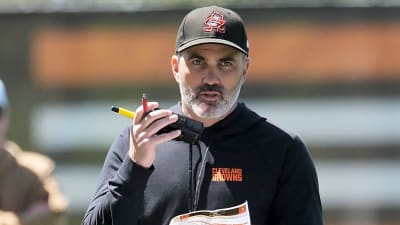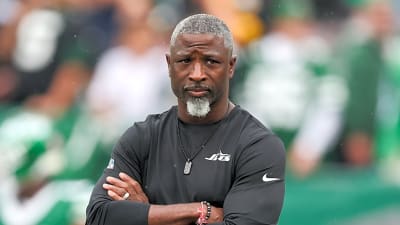- Home
- Quizzes
- My Quiz Activity
- Newsletters
- MY FAVORITES
- Add Sports/Teams
- SPORTS
-
NFL
- NFL Home
- Arizona Cardinals
- Atlanta Falcons
- Baltimore Ravens
- Buffalo Bills
- Carolina Panthers
- Chicago Bears
- Cincinnati Bengals
- Cleveland Browns
- Dallas Cowboys
- Denver Broncos
- Detroit Lions
- Green Bay Packers
- Houston Texans
- Indianapolis Colts
- Jacksonville Jaguars
- Kansas City Chiefs
- Las Vegas Raiders
- Los Angeles Chargers
- Los Angeles Rams
- Miami Dolphins
- Minnesota Vikings
- New England Patriots
- New Orleans Saints
- New York Jets
- New York Giants
- Philadelphia Eagles
- Pittsburgh Steelers
- San Francisco 49ers
- Seattle Seahawks
- Tampa Bay Buccaneers
- Tennessee Titans
- Washington Commanders
-
MLB
- MLB Home
- Athletics
- Arizona Diamondbacks
- Atlanta Braves
- Baltimore Orioles
- Boston Red Sox
- Chicago White Sox
- Chicago Cubs
- Cincinnati Reds
- Cleveland Guardians
- Colorado Rockies
- Detroit Tigers
- Houston Astros
- Kansas City Royals
- Los Angeles Angels
- Los Angeles Dodgers
- Miami Marlins
- Milwaukee Brewers
- Minnesota Twins
- New York Yankees
- New York Mets
- Philadelphia Phillies
- Pittsburgh Pirates
- San Diego Padres
- San Francisco Giants
- Seattle Mariners
- St. Louis Cardinals
- Tampa Bay Rays
- Texas Rangers
- Toronto Blue Jays
- Washington Nationals
-
NBA
- NBA Home
- Atlanta Hawks
- Boston Celtics
- Brooklyn Nets
- Charlotte Hornets
- Chicago Bulls
- Cleveland Cavaliers
- Dallas Mavericks
- Denver Nuggets
- Detroit Pistons
- Golden State Warriors
- Houston Rockets
- Indiana Pacers
- Los Angeles Clippers
- Los Angeles Lakers
- Memphis Grizzlies
- Miami Heat
- Milwaukee Bucks
- Minnesota Timberwolves
- New Orleans Pelicans
- New York Knicks
- Oklahoma City Thunder
- Orlando Magic
- Philadelphia 76ers
- Phoenix Suns
- Portland Trail Blazers
- Sacramento Kings
- San Antonio Spurs
- Toronto Raptors
- Utah Jazz
- Washington Wizards
-
NHL
- NHL Home
- Anaheim Ducks
- Boston Bruins
- Buffalo Sabres
- Calgary Flames
- Carolina Hurricanes
- Chicago Blackhawks
- Colorado Avalanche
- Columbus Blue Jackets
- Dallas Stars
- Detroit Red Wings
- Edmonton Oilers
- Florida Panthers
- Los Angeles Kings
- Minnesota Wild
- Montreal Canadiens
- Nashville Predators
- New Jersey Devils
- New York Islanders
- New York Rangers
- Ottawa Senators
- Philadelphia Flyers
- Pittsburgh Penguins
- San Jose Sharks
- Seattle Kraken
- St. Louis Blues
- Tampa Bay Lightning
- Toronto Maple Leafs
- Utah Mammoth
- Vancouver Canucks
- Vegas Golden Knights
- Washington Capitals
- Winnipeg Jets
- NCAAF
- NCAAM
- Olympics
- Boxing
- Entertainment
- Lifestyle
- Golf
- MMA
- Soccer
- Tennis
- Wrestling
- Sports Betting
- More Sports
- RESOURCES
- My Account
- YB on Facebook
- YB on Twitter
- YB on Flipboard
- Contact Us
- Privacy Policy
- Terms of Service

The biggest NBA trade deadline deals of the last 20 years
If you need a break from trying to decipher all of the trade deadline gossip and rumors on Twitter over the next 24 hours, feel free to take a trip down trade deadline memory lane with me and remember the 20 biggest deadline deals of the past 20 years. For simplicity sake, the slides are arranged chronologically and only include the big names of the deal in the description. However, if we're grading the trades in terms of impact, the five most influential were:
- Monta Ellis to the Bucks (started the Splash Brothers dynasty).
- Pau Gasol to the Lakers (two rings).
- Rasheed Wallace to the Pistons (one ring).
- Baron Davis to the Cavs (Kyrie Irving and a ring).
- Isaiah Thomas to the Celtics (led to Boston acquiring Kyrie Irving).
Point guard swap-a-palooza (Stephon Marbury, Sam Cassell, Terrell Brandon)
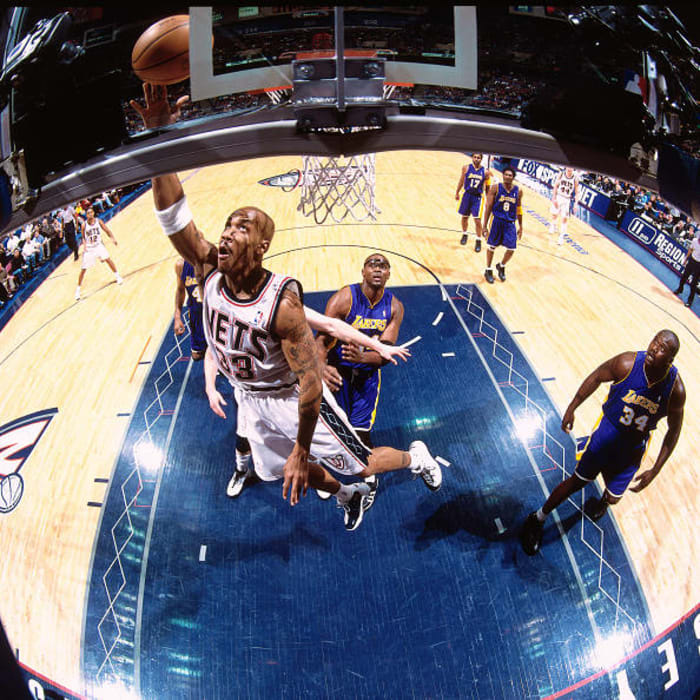
Our first big trade of the past 20 years occurred on March 11, 1999. (The deadline was later that season due to the lockout.) The deal was a three-way trade between the Bucks, Nets and T-Wolves that sent Stephon Marbury from Minnesota to New Jersey, Sam Cassell from New Jersey to Milwaukee and Terrell Brandon from Milwaukee to Minnesota. The trade was the result of Marbury breaking up what could have been one of the most dynamic duos in NBA history by stupidly demanding a trade away from Kevin Garnett because the T-Wolves couldn't give Marbury the same lucrative hundred-million dollar contract as Garnett. (The lack of a salary cap was, ironically, one of the reasons there was a lockout the previous summer.) Of the three point guards, Marbury was the clearly the most talented, but Cassell had the best and longest career.
Dikembe Mutombo finger waves to Philly

Back in February 2001, Allen Iverson was having an MVP season and the 76ers seemed destined to make a run to the NBA Finals, which meant going up against the L.A. Lakers and Shaquille O'Neal and Kobe Bryant at their apexes. When All-Star big man Theo Ratliff went down with an injury, the Sixers decided to trade him and some ancillary pieces to the Hawks for a slightly past-his-prime Dikembe Mutombo in anticipation of having to match up with the most physically dominant big man in NBA history. Did it work? Well, the Sixers succeeded in making it to the Finals. Hell, they even beat the Lakers in Game 1. However, that Game 1 victory ended up being the only win any team would have against the Lakers that spring, as they went 15-1 during the playoffs on the way to a championship. Mutombo, for his part, played well during the playoffs, averaging 14 points, 14 rebounds and a playoff-high 3.1 blocks per game, but he was still no match for prime-Shaq — nobody was.
Ron Artest takes a trip down I-65 to the Pacers

This trade, which happened on Feb. 19, 2002, probably brings up some kind of emotion for Pacers fans. In his third season, a young Ron Artest was showing signs of becoming a star on the lowly Bulls. The deadline deal that sent him down I-65 to Indiana unleashed him into a two-way menace who would win Defensive Player of the Year and make the All-Star team just two seasons later. After winning DPOY, averaging 18 points, five rebounds and four assists per game and helping Indiana to the Eastern Conference Finals in 2004, Artest and the Pacers looked poised to make a Finals run in 2004-05. Artest came out of the gates on fire, averaging 25 points per game and playing like an MVP. We all know what happened next: the "Malice at the Palace." Artest, who later changed his name to Metta World Peace, clearly had some mental issues that were bound to surface at some point, but it's a shame this Pacers era ended before it really got rolling.
Celtics pull the plug on Joe Johnson as a rookie
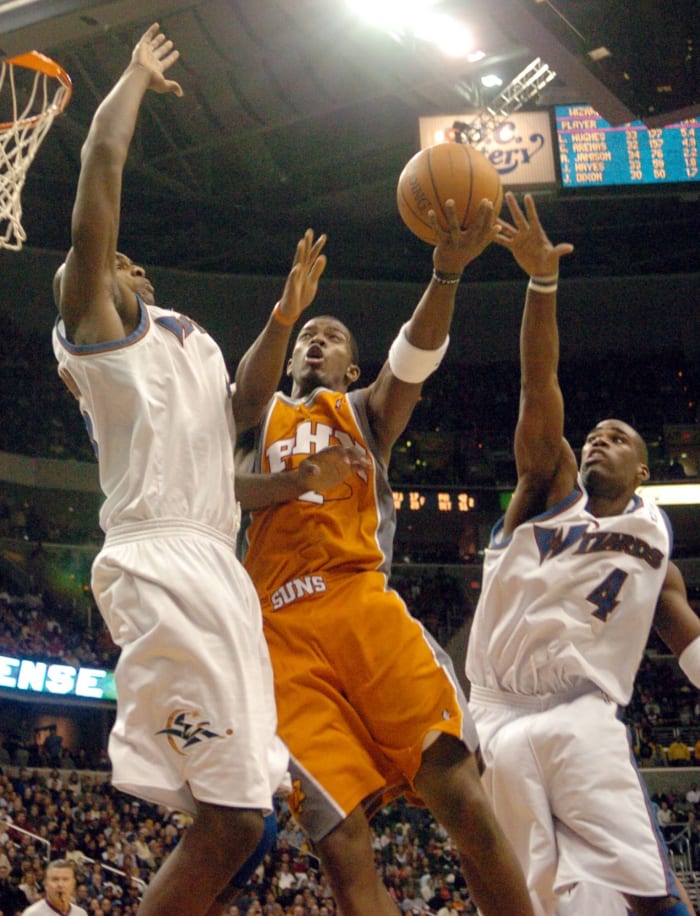
Most people probably don't know this about "Iso Joe," but he was actually drafted No. 10 overall by the Celtics in the 2001 NBA Draft. When he initially struggled, the Celtics, just like they had done with Chauncey Billups in 1998, traded Joe Johnson on Feb. 20, 2002, to the Phoenix Suns for Tony Delk and Rodney Rogers. By his third season, Johnson was averaging 17 points per game. By his sixth season, he was averaging 25 points per game and was an All-Star. By his ninth season, he was an All-NBA player. While the Celtics made a run to the Eastern Conference Finals the year they traded Iso Joe, they sure could have used his services in the progressively depressing years that followed.
Ray Allen for Gary Payton
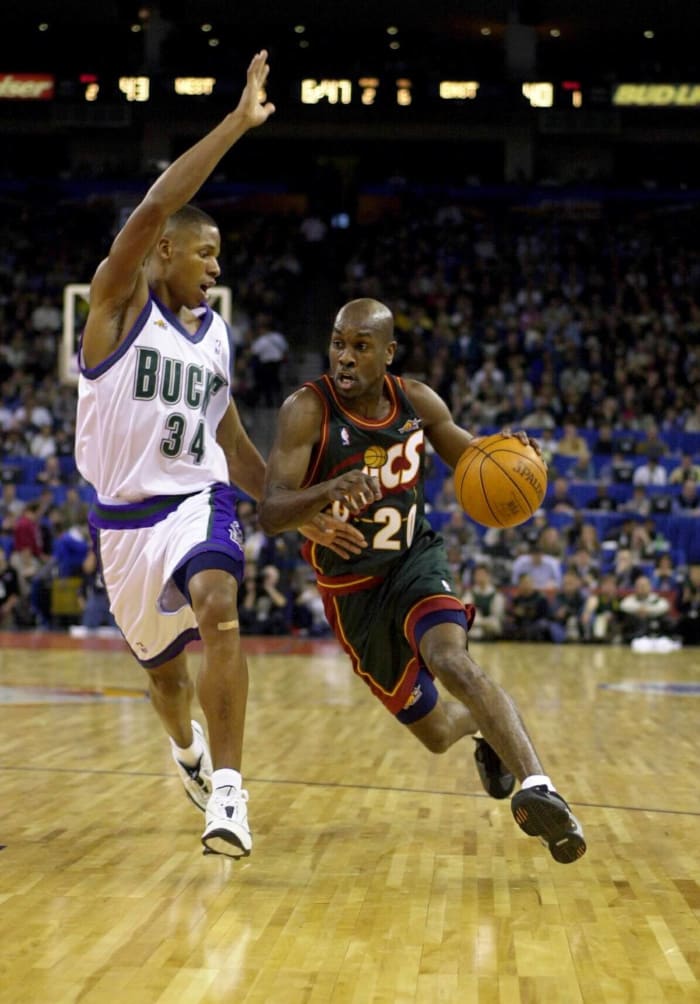
On Feb. 20, 2003, the SuperSonics and Bucks pulled the trigger on a rarely seen superstar-for-superstar trade that sent Ray Allen to Seattle and Gary Payton to Milwaukee. Although Payton was still an All-Star at that point in his career, he was 34 years old, in the last year of his contract and about to see his production fall off a cliff in his final four seasons. The Bucks made the playoffs but were a seven-seed and quickly disposed of by the Nets. Allen, on the other hand, was 27, in the middle of his prime and would go on to be an All-Star seven of the next eight seasons. Seattle clearly won the trade but made the postseason only one time during Allen's four-and-a-half year tenure before trading him to the Celtics in 2007.
Rasheed Wallace puts Pistons over the top
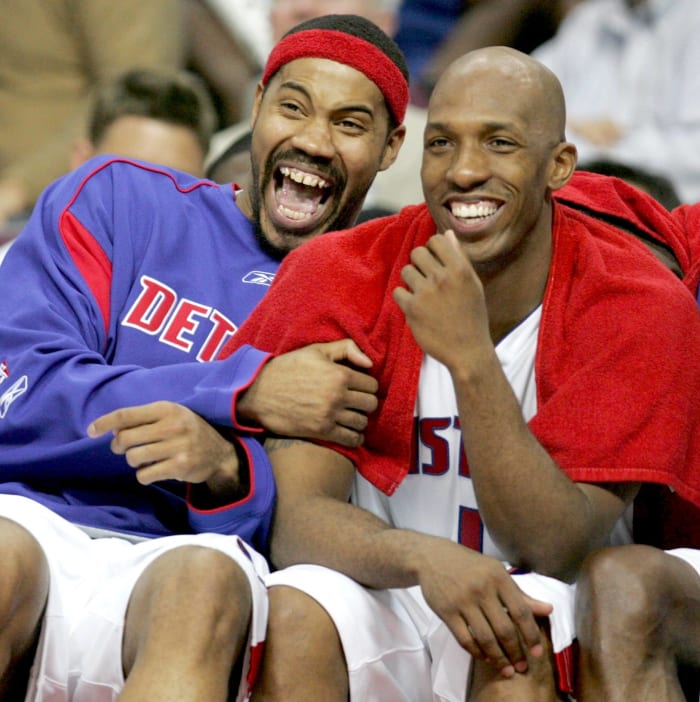
On Feb. 9, 2004, Rasheed Wallace was traded from the Trail Blazers to the Hawks. On Fe. 19, 2004, after playing one game for Atlanta, Wallace was rerouted to the Pistons. Four months later, Wallace was raising the Larry O'Brien Championship Trophy. As it turns out, with Ben Wallace, Chauncey Billups, Richard Hamilton and Tayshaun Prince already in place, the Pistons were a versatile, two-way center away from being a championship team. That's probably selling Rasheed short, however, as he was a highly intelligent, athletic big man who allowed Ben Wallace to hunt for blocks on defense and spaced the court for Billups and Hamilton on offense. Rasheed went on to play five more seasons for Detroit, appearing in another Finals and two All-Star Games. This deadline deal will go down as one of the most impactful in NBA history.
NOLA sends Baron Davis to Golden State

The first of two Baron Davis trades in this slideshow will be remembered a little more fondly by non-Cleveland fans than the one to follow. On Feb. 24, 2005, Davis was traded by the Hornets to the Warriors for Speedy Claxton and Dale Davis. Wait, what!?!? Believe me, it's worse than it seems. I've done the research, and this was as pathetic of a yield for a 25 year-old, two-time All-Star point guard as you could possibly imagine for the Hornets. Davis went on to spend the next three-and-a-half seasons with the Warriors and average 20 points, eight assists and two steals per game during that time. Furthermore, he was the center figure in the "We Believe" Warriors that pulled off the historic 8-over-1 upset over the top-seeded Mavericks in 2007.
Pau Gasol traded to the Lakers for his brother Marc

Believe it or not, one of the most impactful trades in NBA history involved two brothers being traded for one another: Pau and Marc Gasol. Yes, on Feb. 1, 2008, the Lakers were desperate to get Kobe Bryant some help and pulled off an absolute heist for Pau Gasol — acquiring him for Kwame Brown, future convicted murderer Javaris Crittenton, a couple of future first-round picks who amounted to nothing and the rights to a chubby, low-level European prospect named Marc Gasol. The deal gave the Lake Show the post-presence it needed and helped L.A. get to the Finals in Pau's first three seasons with the team. (They lost the first and won the next two.) While Marc surprisingly developed into a star and Memphis staple in his own right, the trade was a home run for the Lakers in the moment and in hindsight.
Shaq to the Seven Seconds or Less Suns

On Feb. 6, 2008, the Suns shocked the basketball world by trading the often-disgruntled Shawn Marion to the Heat for a past-his-prime Shaquille O'Neal. It was a desperate move by the Suns, as Shaq's brooding pace went against everything the Seven Seconds or Less Suns held holy. While the Suns struggled during Shaq's one-and-a-half year tenure with the team, it wasn't necessarily because of him, as he averaged 18 points and eight rebounds and even made the All-Star team as a 36-year old. O'Neal left for Cleveland in the 2009-10 season, and the Suns happily returned to their fast-paced playing style but not before Shaq allegedly stole the "Shaq Vs." idea off Steve Nash.
Jason Kidd to Mavericks

On Feb. 19, 2008, Jason Kidd was traded from the Nets back to the team that drafted him more than a decade earlier: the Mavericks. The Nets got a couple of future first-round picks, Devin Harris and a retired Keith Van Horn in exchange for the 34-year-old All-Star point guard. Though his scoring and rebounding numbers took a hit after the trade, Kidd developed into a good three-point shooter in Dallas while remaining a good defender and a savant-level passer. Kidd's ability to reinvent himself with the Mavericks was one of the main reasons the team was able to make a shocking run to the NBA Finals in 2011, where they upset the LeBron James-Dwyane Wade-Chris Bosh Heat in one of the more surprising championships in recent memory.
Carmelo Anthony forces his way to the Knicks

In a move that acts as a microcosm for Carmelo Anthony's career, on Feb. 22, 2011, Anthony, an unrestricted free agent in the offseason, forced his way to New York. The move was a short-sighted play by Anthony, as he was planning on signing with the Knicks in the offseason regardless. Instead of waiting, he forced the Knicks to give up a number of valuable assets (Danilo Gallinari, Wilson Chandler, Raymond Felton, future draft picks) just so the Knicks could offer him more money that summer. He would later lament that often he didn't have enough help — gee, I wonder why? Oh well. Melo never really prioritized winning anyway. He cared about money, gettin' his on and off the court, being famous and playing in New York. Then, and only then, did winning cross his mind.
Clippers dump Baron Davis' salary, attach pick that becomes Kyrie Irving

If we're being honest, the Cavaliers owe Baron Davis a championship ring for his part in their historic 2016 title. Despite appearing in only 15 games for the Cavs, Davis landed Cleveland Kyrie Irving. Back on Feb. 24, 2011, the Clippers were desperate enough to get off Davis' bad contract that they traded him to Cleveland along with an unprotected first-round pick in the 2011 NBA Draft. By some act of God (or a "frozen" pingpong ball), that pick, which only had a 2.8 percent chance of being the No. 1 pick, ended up being the top pick in the draft. You know what happened next? The Cavs drafted Kyrie Irving. Irving developed into an All-Star quick enough to make LeBron James return to Cleveland in 2014. And the Cavs won the 2016 NBA championship.
Celtics trade Kendrick Perkins to Thunder for Jeff Green

On the same day that jump-started the Cavs' revival, Febr. 24, 2011, the Celtics traded one of their defensive cornerstones, Kendrick Perkins, to the Thunder for Jeff Green. On paper, it seemed like a good move for both teams. The Celtics needed an athletic wing to help guard LeBron James and Dwyane Wade and add some scoring pop to an older roster. The Thunder needed some toughness and veteran leadership to help Kevin Durant, Russell Westbrook and James Harden develop. Perkins did his part in Oklahoma City. Green ended up missing the next season after having open-heart surgery, and then he proceeded to drive fans nuts by playing like an All-NBA player one night and a bench warmer the next.
Bucks choose Monta Ellis over Steph Curry; launch Warriors dynasty

March 13, 2012: the day the Warriors dynasty began. On that day, Golden State traded Monta Ellis to the Bucks to acquire Andrew Bogut. According to the Bucks' current owner (who did not own the team at the time), Milwaukee had the choice between Ellis and Steph Curry. Turns out, Ellis, who was a nice scorer in his own right, was holding Curry back, and Bogut's passing helped unleash the Splash Brothers dynasty. The next season, the Warriors drafted Draymond Green and nearly took out the San Antonio Spurs in the Western Conference semifinals. The year after, the Warriors won their first of three (and counting) championships during this era.
Blazers trade Gerald Wallace for pick that becomes Damian Lilliard
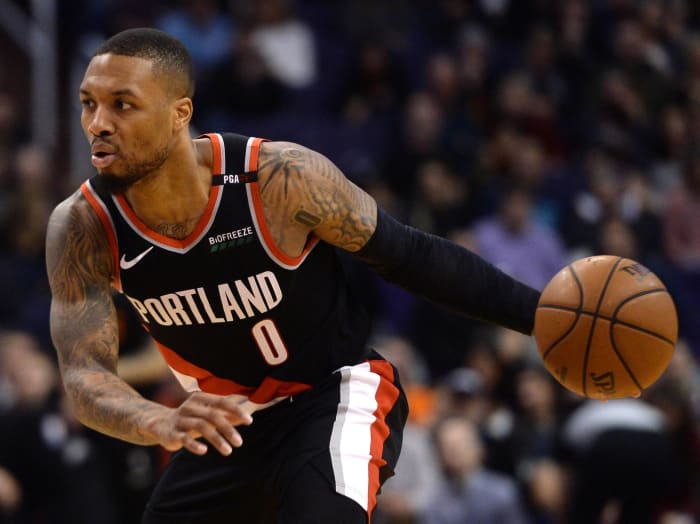
In one of the stupider trades of the last 20 years, on March 15, 2012 (also a lockout-shortened season), the Nets acquired a past-his-prime Gerald Wallace for a top-three protected, 2012 first-round draft pick. In the moment, everyone questioned why the Nets would ever trade a first-round pick for Wallace, let alone a lightly protected first-round pick. The Nets' answer: They only thought that three prospects in the 2012 draft class were worth drafting. Thus, if the pick fell outside the top three, who cares? It's not worth anyone's time to spell out why this faulty logic was so outlandish. As you can probably guess, the pick fell outside the top three, and the Blazers happily scooped up a future Hall of Fame point guard in Damian Lillard with the No. 6 pick. The rest is history.
Celtics land the King in the Fourth

On Feb. 19, 2015, the Celtics acquired Isaiah Thomas for a crappy first-round pick and a couple of Doritos. Thomas rewarded the Celtics by tossing up 19 points and five assists per game the rest of that season. In 2016, Thomas led the Celtics to the playoffs and was named an All-Star while averaging 22 points and six assists per game. In 2017, Thomas damn near won MVP, averaging 29 points and six assists per game and turning in a number of gutsy playoff performances while playing injured and mourning the tragic loss of his younger sister. But the real reason this was such an important trade for the Celtics in 2015 is because Thomas was traded to the Cavs for superstar guard Kyrie Irving in the summer of 2017. Little did anyone know at the time, but poor Thomas ended up becoming the sacrificial lamb who may have jump-started the Celtics' next dynasty.
DeMarcus Cousins traded during the All-Star Game

During the 2017 All-Star Game held (ironically) in New Orleans, DeMarcus Cousins suspiciously played only two minutes despite being one of the more deserving Western Conference All-Stars. After the game, we found out that during the game Cousins had been traded from the Kings to the Pelicans for Buddy Hield and some draft picks. The deal gave the Pelicans their own version of the Twin Towers with Cousins and Anthony Davis. Unfortunately for Boogie and the Pelicans, they weren't able to turn the season around in time to make the playoffs in 2017. Then, just as they started to get rolling, Cousins ruptured his Achilles tendon 48 games into the 2018 season. The Kings actually won this trade, as Hield has blossomed into a borderline All-Star alongside De'Aaron Fox.
Clipper for life, Blake Griffin, gets sent to Detroit

If there are two people whom Blake Griffin hates more than Clippers owner, Steve Ballmer and former Pistons head coach and team president Stan Van Gundy, I demand that you show them to me. Why the animosity toward those two? Because on Jan. 29, 2018, after wooing Griffin earlier that summer to sign a max deal in L.A. by "retiring" his jersey in the Staples Center, Ballmer traded Griffin from sunny Los Angeles to Detroit to play out the rest of his five-year, super-max contract. Griffin, for his part, has been great for the Pistons, averaging a career-best 26 points, eight rebounds and five assists this season, but as seen by his "interaction" with Ballmer when the two teams met earlier this season, he's still hurt by the trade.
Cavs reset entire roster at deadline

With their season on the brink and LeBron James essentially staging an on-court protest, general manager Koby Altman completely blew up Cleveland's roster on the day of the trade deadline and reinvigorated James for one last run to the Finals for The Land. In total, the Cavs shipped out six rotation pieces — Isaiah Thomas, Dwyane Wade, Channing Frye, Jae Crowder, Derrick Rose and Iman Shumpert — in a handful of trades that brought them back Jordan Clarkson, Larry Nance Jr., George Hill and Rodney Hood. Although most of the incoming players shrank from the big moments in the playoffs and the season ultimately ended in a Finals sweep at the hands of the Warriors, the deadline was a turning point in James' season, as he played arguably the best basketball of his career from that moment forward.
Knicks trade Kristaps Porzingis to Mavericks

In a shocking deal that seemed to have materialized out of thin air, on Feb. 1 the Knicks traded Kristaps Porzingis and some bad contracts to the Dallas Mavericks for Dennis Smith Jr., some expiring contracts and two future first-round picks. For Dallas, this deal lands them the ideal (when healthy) pick-and-roll partner to team with rookie sensation Luka Doncic for the next decade. For the Knicks, this move represents the preliminary move to clear their books before the franchise's most important summer since 1985 (when they drafted Patrick Ewing). If the Knicks can land a marquee free agent or two (Kevin Durant and Kyrie Irving?) in July, this will have been a brilliant trade. If they swing and miss, they'll have to explain to their rabid fan base why they traded their most beloved player in what amounted to a salary dump.
Pat Heery began his sports writing career in 2016 for The Has Been Sports Blog. He practices real estate law during the day and runs pick & rolls at night. Follow him on Twitter: @pheery12
More must-reads:
- Sixers, Clippers agree on blockbuster Tobias Harris trade
- Tobias Harris could turn 'The Process' into a title run in Philly
- The 'Most intentional walks in a MLB season' quiz
Breaking News
Trending News
Customize Your Newsletter
 +
+
Get the latest news and rumors, customized to your favorite sports and teams. Emailed daily. Always free!
PRIVACY POLICY EDITORIAL POLICY CONTACT US
ABOUT YARDBARKER TERMS OF SERVICE
Use of this website (including any and all parts and
components) constitutes your acceptance of these
Terms of Service and Privacy Policy.
This site is for entertainment purposes only.
There is no gambling offered on this site.
Gambling Problem? Call 1-800-Gambler.



